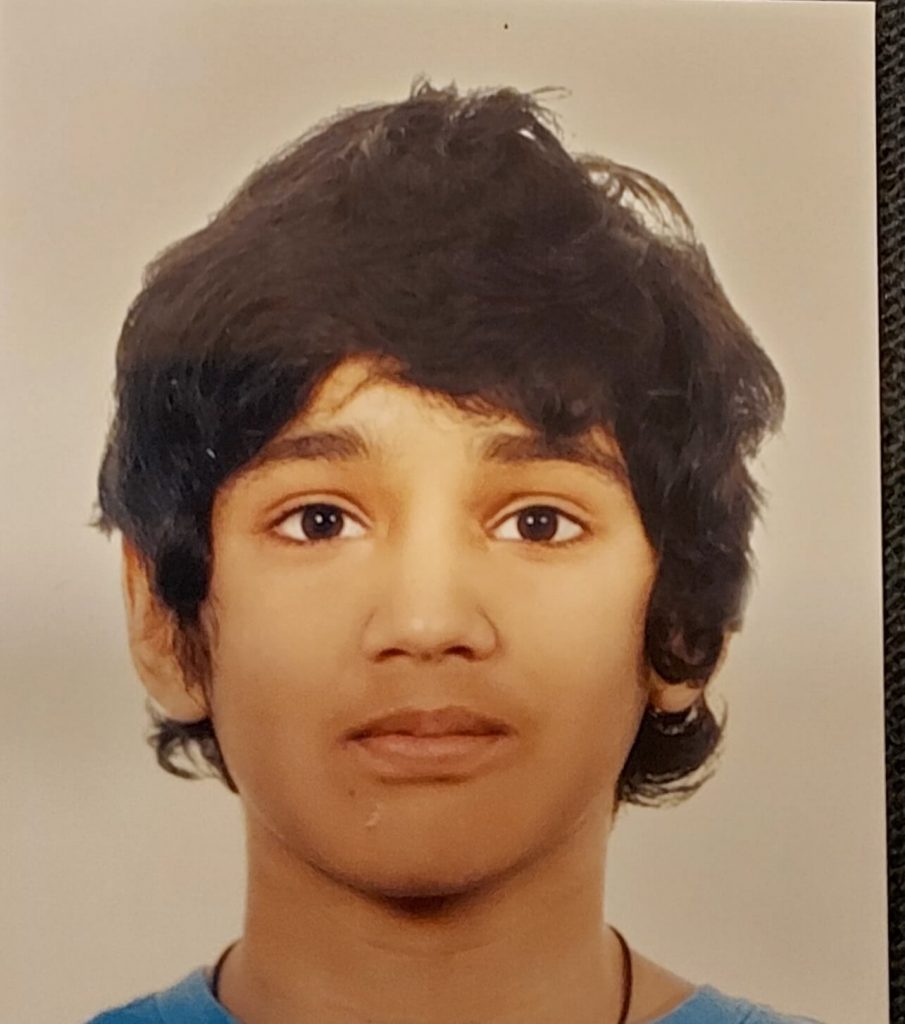Our Schools
A good father will leave his imprint on his daughter for the rest of her life.
~ Dr. James Dobson
To a daughter, a father is always her knight in shining armour. The one calm in the storm she can always hold on to. The one line of defence, which, no matter how old she grows or what she is dealing with, will never hesitate to stand in front of her.
My father and I have always shared the most special relationship. He is the only person who can make me laugh when I feel I cannot even smile.
One incident which will never erase itself from my memory is when he sat by me when I got my first ever poor grade in middle school,m doing the exact same thing.
I was 12 years of age when this happened.
As the answer sheets for our recent Mathematics test were being distributed, I sat there waiting for my own. Maths was not my strong suit, but I had always managed to get a decent marks in the subject. This time too, I had put my best foot forward for the test and had expected a decent result, as per usual.
Only it was not.
In the place where there usually sat a B or a B+ rather comfortably was a bright, imposing C in red, staring right back at me. My first reaction to this was a look of pure disbelief. As I kept looking at the grade, it morphed into a face which mocked me incessantly.
Once the disbelief had washed over me and was gone, a fine sheen of shame collected in my irises, cascading down my cheeks as tears. That evening, when my father came to pick me up from school, he was met with a weak hug and downcast eyes from me.
When we once got to the car, he inquired about what happened instead of beating around the bushes. With a quivering lip, I told him about my grade. Mentally, I had prepared myself for the speech that was about to come. About how he was absolutely disappointed in me. About how I had been a terrible child and deserved a harsh punishment.
Much to my disbelief, however, he simply put his head back on the car seat and barked out a laugh. When I looked at him, I suppose my disbelief was clear in my eyes since he simply smiled and told me he had done the exact same thing in his school days. Moreover, he suggested that I should instead be celebrating the fact that I passed!
He promised that he would help with the upcoming Maths test and assured me that mistakes were nothing but stepping stones to success.
That was how my father made me laugh all the way home when I thought I couldn’t even crack a smile. On that day, I never felt more connected to my dad because I understood that even sometimes, our heroes make mistakes, and that is perfectly fine.
#TeacherBlogger: The Transformative Impact of Changing Education Systems on Students By MR.Francis, Ekya School, BTM Layout
Education systems play a pivotal role in shaping the lives of students, moulding their intellect, character, and future prospects. Over the years, these systems have undergone significant changes, reflecting societal advancements and evolving educational philosophies. The impact of these changes on students has been profound, altering their learning experiences, skills development, and overall growth.
Enhanced Learning Experiences:
One of the key impacts of changing education systems is the enhancement of learning experiences. Traditional approaches centred on rote memorisation and passive learning have given way to student-centred methodologies. These methodologies emphasise active participation, critical thinking, and problem-solving. Students are now encouraged to explore, question, and engage with the subject matter, fostering a deeper understanding and retention of knowledge.
Holistic Skill Development:
With the changing education systems, there has been a shift towards holistic skill development. Beyond academic knowledge, students are now equipped with essential life skills such as communication, collaboration, creativity, and adaptability. The emphasis is placed on nurturing well-rounded individuals who are prepared to tackle real-world challenges.
Inclusivity and Diversity:
Another significant impact is the increased focus on inclusivity and diversity within education systems. Schools now strive to create inclusive environments that embrace students from different backgrounds, abilities, and learning styles. This promotes a sense of belonging and encourages mutual respect, preparing students for a diverse global community.
Preparation for the Future:
Changing education systems are also geared towards preparing students for the demands of the future. With the rapid pace of technological advancements and the evolving job market, students need to develop relevant and adaptable skills. Modern education systems integrate technology, digital literacy, and critical thinking, enabling students to navigate the digital age and thrive in a constantly changing world.
The impact of changing education systems on students is far-reaching and transformative. From enhanced learning experiences and holistic skill development to promoting inclusivity and preparing for the future, these changes have revolutionised the way students learn and grow. As education systems continue to evolve, it is crucial to prioritise the needs of students, ensuring that they receive a well-rounded education that equips them with the knowledge, skills, and mindset to succeed in a dynamic and interconnected world.
#TeacherBlogger: Teaching Emotional Intelligence ……. Need of the hour. By Mathangi R , Ekya School, NICE Road
“As much as 80% of adult “success” comes from EQ.” — Daniel Goleman
While success means different outcomes to different people, it is clear that EQ plays a very crucial role in enabling one to achieve his/her goals.
This applies to young minds also. Academic learning can happen only when the child has emotional awareness and self-regulation. Integrating these emotional skills into the curriculum is the need of the hour. Is this a need that has arisen just now? Not really; but this need was not realised and understood earlier; Over the last few decades, educational institutes “managed” academic learning without emphasis on emotional awareness, and there were no visible undesirable consequences at the community level.
So, what is different now?
-
Globalisation and Social Media have condensed the world, and children have access to a variety of information. One needs emotional balance to sort and process this sea of information.
-
Children of this generation are part of nuclear families; some do not have siblings; hence are the centre of focus of both parents and have access to all privileges without having to “earn” them. Children find it difficult to cope with disappointments and failures.
-
Post-COVID, children find socialisation difficult, resulting in increased interpersonal conflicts in the classroom.
Thus, the need to develop emotional intelligence should be a high priority of educational institutes across the world. More today than before. At Ekya, we empower children with self-awareness and social awareness through our “Life Skills” program. Our life skills programme is based on the Social Emotional and Ethical Learning curriculum developed by Emory University, Atlanta, USA. It is a module-based curriculum that takes children through various aspects of self-awareness and social awareness. If we want a better world to inhabit, we need to start today, right now, by empowering our future citizens with emotional intelligence.
Mathangi R Head of School Ekya NICE Road











Leave a reply